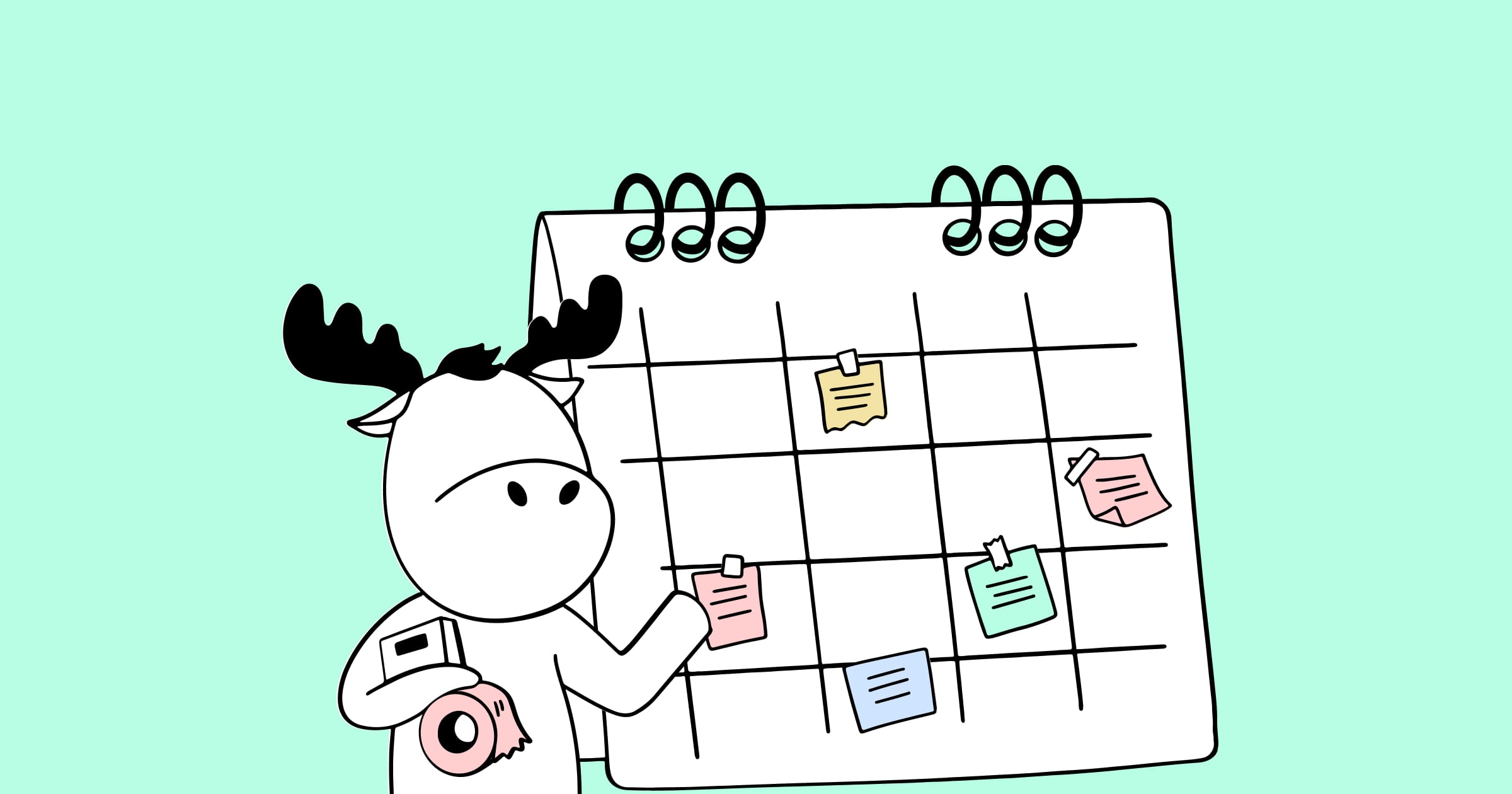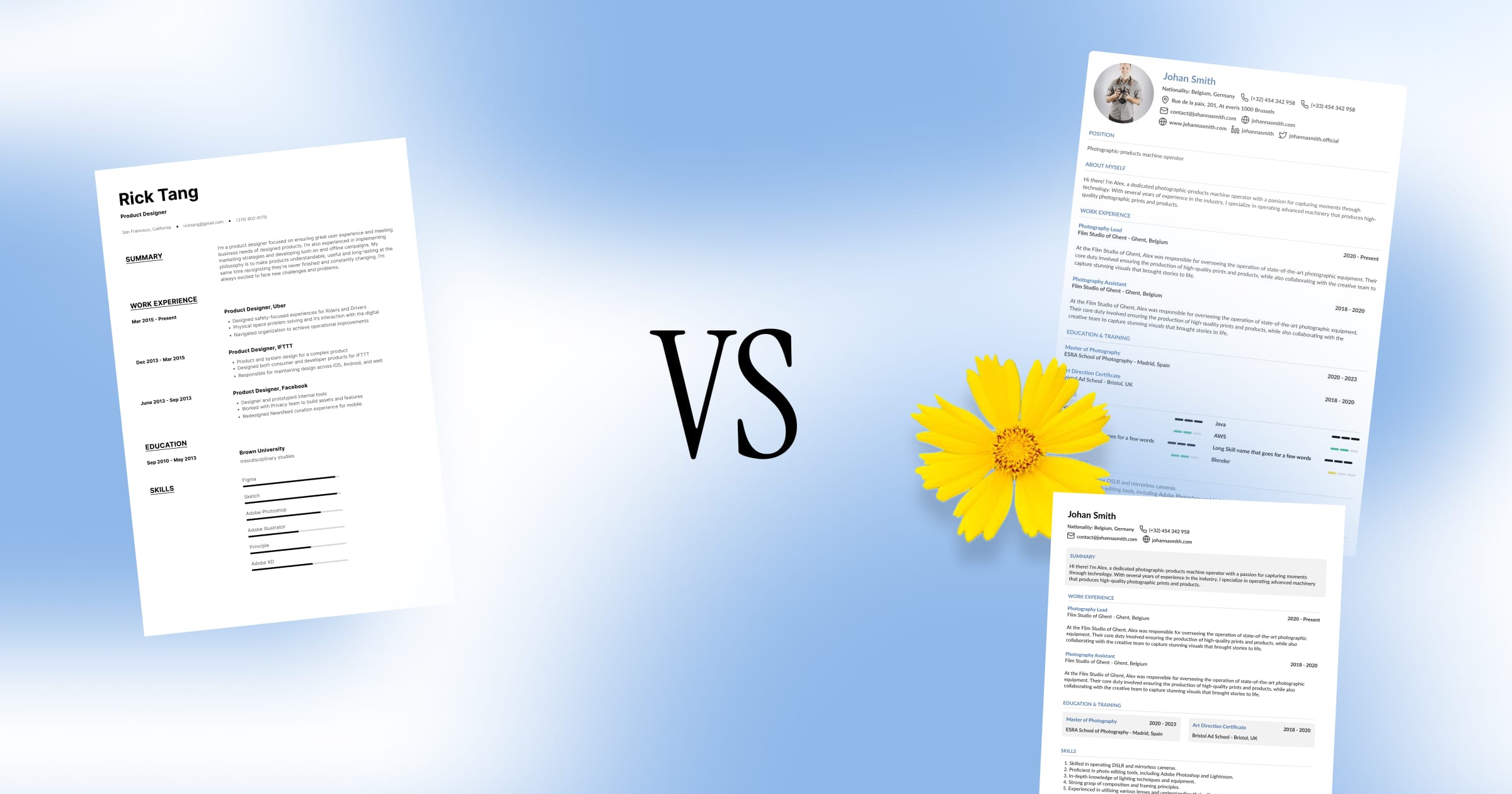
The soft skills that matter most in 2026, according to 100,000+ professionals
An employee-centred look at the soft skills driving performance, growth, and adaptability in an AI-enabled world of work
Introduction
As we enter 2026, organisations everywhere continue to accelerate their shift to AI-enabled work. But across industries, leaders are discovering that even as automation expands, it is soft skills – problem-solving, collaboration, empathy, and communication – that determine which teams adapt, innovate, and perform.
To understand how AI is influencing the demand for such key human capabilities in 2026 and beyond, we asked Daniel Samaan, senior economist at the International Labour Organization, whether he expects demand for soft skills to accelerate as AI takes on more technical tasks.
"In theory, yes,” said Samaan. “It’s a point often made in both academia and policy circles: soft skills – like collaboration, communication, and interpersonal capabilities – will be in greater demand, since this is where humans retain a clear comparative advantage over machines.”
But what does this look like in practice? Which soft skills are professionals actually relying on today?
To answer these questions, we analysed data from MuchSkills, our skills management platform, which hosts profiles of more than 40,000 professionals in skills-first organisations worldwide – particularly in consulting and technology, where role requirements evolve quickly and skills transparency is essential.
We identified the 30 most frequently listed soft skills. These aren’t skills listed on résumés or job-seeking profiles, where claims can be overstated, but rather the skills professionals have recorded in their organisational skills profiles – visible to their peers, validated by managers, and actively used to match people to roles and projects in skills-first organisations.
The result is a rare, employee-centred view of the soft skills shaping the future of work, representing one of the largest and most detailed snapshots of real-world soft skills across global organisations.
Kemi Phillips, Partner, Phillips Consulting, a leading business management and consulting firm based in Nigeria, highlighted the value of capturing skills insights directly from those embedded in daily work.
“I think it is hugely valuable and important to understand what employees think about soft skills in their professions,” said Phillips. “It is known that ‘human skills’ in the workplace are on the rise as we adopt more and more technology and AI to support work. But employees embedded in their day-to-day roles are in a much better position to be able to identify the soft skills they are seeing as critical.”
In this report, we explore the skills shaping the future of work – and what they mean for leaders, HR, and L&D teams in 2026 and beyond. We use the terms ‘soft skills’, ‘human skills’, and ‘durable skills’ interchangeably to describe transferable human capabilities such as problem-solving, empathy, collaboration, and adaptability.
Methodology
The soft skills listed below are drawn from a dataset of more than 40,000 self-reported, manager-validated skills profiles. While it is weighted towards consulting and technology firms, the prominence of skills such as problem-solving, empathy, and communication closely mirrors global demand patterns across industries.
The dataset also provides a rare employee-centred view of the skills people actually use at work – insight grounded in real, day-to-day capability. While not every skill in every profile is manager-validated, the combination of self-reporting, visibility to peers, and structured validation processes reduces the inflation typically seen in CVs or job-seeking profiles.
Unlike employer-centred studies such as those from Deloitte, RedThread, or Lightcast’s labour-market analyses, which reflect demand from the top down, this dataset captures the skills employees themselves identify and apply in their day-to-day work. It highlights which soft skills matter in practice and are most commonly recognised across today’s dynamic workplace.
To complement our employee-centred dataset with a wider labour-market perspective, we asked Lightcast to share what they are seeing at scale.
“In Lightcast’s Beyond the Buzz (July 2025) – an analysis of over 1.3 billion job postings – we find a 28% salary premium for roles requesting AI skills, and that eight of the top ten skills demanded in AI-enabled roles are human capabilities,” said Richard Hewitt, Senior Commercial Director, Enterprise (Global), at Lightcast. “Taken together, the signal is clear: durable skills are rising across roles.”
Together, these insights show that the patterns we see within skills-first organisations reflect what is happening in the wider labour market. Durable human capabilities are gaining real, measurable value across roles. Building on this, Hewitt added: “In our wider work, we combine job-postings trends with profiles data to deliver market-aligned skills intelligence – benchmarks, role-to-skill maps aligned to job architecture, and governance-ready refresh cycles. Used alongside validated employee assessments in platforms like MuchSkills, this gives organisations a shared baseline to calibrate proficiency models and measure progress over time."
While the MuchSkills soft skills dataset identifies the 30 most frequently listed soft skills, this report focuses on the top 10 in detail, presenting them alongside relevant external research and actionable recommendations for HR, L&D, and organisational leaders.
Top 10 soft skills identified
The most frequently identified skills in the dataset are:
- Problem solving
- Empathy
- Teamwork
- Willingness to learn
- Active listening
- Communication
- Critical thinking
- Leadership
- Attention to detail
- Adaptability
A full ranking of the top 30 skills is provided later in the report.
Skills insights and trends
#1 Problem-solving
Problem-solving is the clear front-runner in our dataset, with more than twice as many mentions as empathy, the second-ranked skill.
In consulting and technology services, problem-solving is not just a competency but a core part of the value organisations deliver to clients.
Additionally, research, including the World Economic Forum’s Future of Jobs Report 2025, has highlighted analytical thinking, resilience, flexibility and agility, curiosity, and lifelong learning – all critical for effective problem-solving – as the most in-demand skills across industries in the coming years.
This context makes the dominance of problem-solving in our dataset particularly notable – it reflects both its centrality to client work and the growing recognition of its importance across all sectors.
Daniel Nilsson, CEO of MuchSkills, who works with governments and organisations worldwide to implement skills-based approaches at the workplace, highlighted a common challenge in developing problem-solving capabilities.
“It’s fascinating to see problem-solving emerge as the top soft skill in this dataset," said Nilsson. "In my experience, many organisations assume their employees already have strong problem-solving abilities, but few invest in structured training to develop them. Without formal frameworks, even talented employees may struggle to apply problem-solving consistently or in new contexts. That makes targeted development a priority for leaders."
Takeaway: Organisations should invest in embedding structured problem-solving frameworks into training programmes and encourage practical application through real-world projects to strengthen both individual and organisational capability in this critical skill.
#2 Empathy
Empathy ranked second overall, reflecting the growing emphasis professionals place on these skills even in industries traditionally dominated by technical expertise.
Empathy and trust are recognised as important drivers of employee retention and leadership effectiveness. Research has shown that empathy is the single most important leadership skill, with one expert calling it a workplace superpower. Empathetic leaders are also better at managing burnout and building resilient teams, according to another study.
Asked for his thoughts on the relevance of empathy and other soft skills in the age of AI, Dhiresh Britto, an expert in HR transformation and HR technology with deep experience designing and implementing people-centred solutions, emphasised that soft skills such as communication, teamwork, and empathy remain indispensable at all levels of the organisation.
He highlighted the importance of empathy and user-centred thinking, noting:
“Empathy is always important, whether you're talking about AI or not. In most organisations, processes and the way they function are not integrated in a seamless way across the organisation to either be friendly to the customers or employees.”
Without this focus, he added, organisations risk designing processes that fail both employees and customers.
Empathy, he explained, enables people to understand others’ perspectives, build user-centred solutions, and collaborate effectively. This human insight is crucial in mitigating risks that arise from fragmented processes, poor knowledge sharing, or over-reliance on AI, ensuring that both employees and customers are supported by organisational systems.
Britto also stressed that soft skills remain critical at the leadership level, illustrating a continuum from frontline empathy to organisational cohesion. He noted that these skills become even more vital as organisations integrate AI-driven systems.
“What’s going to be very problematic in the agentic AI world is the consequences of bad data which is amplified by not sharing data across processes,” he said. “That’s where collaboration, knowledge management, and systems thinking become critical at the leadership level – to see how the pieces of the organisation need to be connected and where the connections are breaking.”
Takeaway: Empathy isn’t just nice to have – it is an essential soft skill at every level, from frontline problem-solving to leadership-driven systems thinking, and should be central to any development programme.
#3 Teamwork (and #13 collaboration)
Team-related skills feature prominently in the dataset, with mentions of teamwork (#3), collaboration (#13), and related skills surpassing problem solving as the most frequently cited skill. This emphasis suggests that many modern work environments – particularly agile, project-based, and client-focused teams – rely heavily on collaborative skills to achieve outcomes and adapt to change.
Research supports this: teamwork and collaboration aren't just desirable, they are critical to team and organisational performance.
Google conducted an interesting study on collaboration over a decade ago. Project Aristotle studied over 180 teams and found that how teams work together often matters more than who is on the team. Among the five key dynamics identified – psychological safety, dependability, structure and clarity, meaning, and impact of work – psychological safety emerged as particularly important, showing that employees who feel safe to voice ideas and take risks contribute more effectively to collaboration.
At the organisational level, Deloitte research finds that adopting team-based structures is associated with improved overall performance, demonstrating that strong collaboration at the team level can translate into tangible business results.
Takeaway: HR and L&D teams should measure not only individual performance but also contributions to team outcomes. Reward systems may need to evolve to recognise collaborative contributions.
#4 Willingness to learn (and #14 fast learning)
Willingness to learn (#4) and fast learning (#14) in the dataset underscore learning agility as a key competency in today’s workforce. Learning agility reflects how quickly employees can acquire and apply new knowledge – a crucial ability in an era where technologies and platforms evolve faster than traditional education systems can keep up.
The urgency of having this skill is clear: the World Economic Forum projects that 44% of core skills will change by 2027, creating a pressing need for widespread upskilling and reskilling. Similarly, 79% of CEOs worldwide report concerns that skills shortages could hinder their company’s growth, according to PwC.
Developing learning agility enables employees to adapt quickly, apply new knowledge effectively, and help their organisations navigate the rapid pace of change in skills and technology.
Takeaway: Organisations should build systems that support continuous learning – from micro-learning to mentorship – while recognising and enabling the self-directed learning that is increasingly defining the modern workforce.
#5 Active Listening
Active listening, ranked #5 in the dataset, is increasingly recognised as a cornerstone of effective communication and collaboration. It often intersects with other highly ranked skills – empathy (#2) and communication (#6) – highlighting its central role in fostering interpersonal effectiveness. Employees who actively listen can better understand colleagues’ perspectives, respond thoughtfully, and build trust, strengthening teamwork and supporting better decision-making.
In today’s dynamic workplaces, where cross-functional collaboration and client-facing interactions are critical, active listening enhances problem-solving and reduces misunderstandings. It also supports leadership and coaching capabilities, allowing managers to engage employees more meaningfully and guide teams effectively.
Takeaway: Organisations should cultivate active listening through training, feedback, and mentoring, embedding it into everyday interactions. Recognising and rewarding attentive communication can reinforce a culture where listening is as valued as speaking, ultimately improving collaboration, engagement, and performance.
#6 Communication
Communication appears in several variations such as communication (#6), verbal and written communication (#16), business communication (#18), and interpersonal communication (#21).
Experts emphasise that effective communication is the foundation of strong workplace relationships. When employees can express themselves clearly and listen to one another, it strengthens connections and builds a healthier company culture. The result is more cohesive performance along with greater employee loyalty.
Perhaps this is why according to LinkedIn’s 2024 Most in-demand skills report, communication is the number one skill in demand for organisations worldwide. This is especially true in consulting and tech, where clear communication directly affects client trust and delivery.
Takeaway: Communication training should extend beyond presentation skills to include writing for influence, digital-first collaboration, and cross-cultural communication.
#7 Critical thinking
Critical thinking ranked seventh in our soft skills list, reaffirming its growing importance in a world where decisions are increasingly shaped by data and algorithms. The ability to question assumptions, evaluate information objectively, and make sound judgements has become a defining human advantage. As IBM CEO Arvind Krishna has observed, "If the lower half of cognitive work gets taken over by genAI, it implies that you've got to learn critical thinking. That means critical thinking, regardless of which domain you're in, becomes the skill that is far, far more needed."
In an age where machines execute tasks faster than we ever could, experts emphasise that true value lies in how we think with AI – knowing what to delegate, what to keep for ourselves, and how to interpret what comes back.
Damon Lembi, CEO of Learnit, a global provider of corporate training and upskilling programmes, said that as technology takes on more of the doing – from coding to analysis to design – the skill that separates good from great is the ability to think with AI. “AI isn’t just changing what we do; it’s changing what we’re valued for,” Lembi said. “Two people with the same AI tools can produce radically different outcomes based on how they frame problems, what questions they ask, and how relentlessly they interrogate the output.”
In this sense, critical thinking has never been more future-proof. It’s not simply about scepticism or analysis – it’s about clarity, curiosity, and judgement in ambiguity. The best thinkers of tomorrow will be those who know how to challenge the machine and, more importantly, know when to trust it.
Takeaway: The organisations that thrive won’t just teach people to use AI; they’ll build cultures that reward questioning, reflection, and the courage to think deeply before acting. In practice, that means nurturing environments that encourage structured thinking and curiosity, not just rapid solution delivery.
#8 Leadership
Leadership appears in several forms in our dataset: leadership (#8), team management (#20), team leadership (#23), and decision-making (#29). Together, these reflect different dimensions of leadership – from strategic vision and people management to effective decision-making.
They also reveal how expectations of leaders are evolving. Modern leadership is no longer defined solely by authority or hierarchy but by influence, collaboration, and the ability to empower others.
As organisations increasingly adopt AI and automation, the human dimensions of leadership are taking centre stage. Leaders must not only guide teams through technological change but also interpret its impact on people, purpose, and performance. In this context, leadership becomes less about command and control and more about fostering adaptability, inclusion, and trust.
Takeaway: Leadership development and pipelines should move beyond authority and strategy training to prepare future leaders who can coach, facilitate, and influence, and encourage distributed decision-making, inclusion, and human-centred influence – the capabilities that sustain trust and agility in an AI-driven workplace.
#9 Attention to detail
Attention to detail ranked ninth in our dataset of soft skills, underscoring its value in industries where precision and accuracy are critical.
In consulting and technology especially, small oversights can cascade into client dissatisfaction, rework, or even reputational risk. Importantly, attention to detail also strengthens other top soft skills: it makes problem-solving more robust, ensures communication is clear and accurate, and supports leadership through accountability and follow-through.
The prominence given to this soft skill by professionals in skills-based organisations suggests a recognition that in fast-paced, complex environments, detail orientation is not just about avoiding mistakes but about building trust, quality, and reliability.
Takeaway: Training and processes should help employees balance speed with rigour, especially in client-facing work.
#10 Adaptability
Adaptability (#10) and adaptability and flexibility (#28) emerged as closely related but distinct strengths in the dataset. Adaptability reflects an employee’s ability to adjust to changing circumstances with confidence. Adaptable employees not only remain effective under pressure but also maintain their wellbeing, contributing to resilient, high-performing teams capable of thriving in dynamic environments.
Adaptability is equally vital for leaders. A 2020 Harvard Business School survey of 1,500 executives across more than 90 countries found that 71% considered adaptability the most important quality they looked for in a leader.
Takeaway: Organisations should foster adaptability by encouraging flexibility, supporting employees through change, and equipping leaders with the skills to guide teams in uncertain and evolving conditions.
Strategic takeaways for 2026
The MuchSkills dataset, combined with global research, suggests several takeaways for organisations. These include:
- Soft skills are durable skills – they retain value even as technology shifts.
- Talent strategies must rebalance – recruitment, performance management and promotions should place greater weight on soft skills such as empathy, adaptability and communication.
- L&D programmes should centre soft skills – not as optional workshops but as core development tracks.
- Measurement must evolve – organisations should develop metrics that capture soft skills, from peer feedback to project outcomes. For example, organisations can combine peer feedback scores on collaboration with project delivery outcomes to identify teams where strong soft skills correlate with higher performance.
Recommendations
Building on these strategic takeaways, organisations can translate insight into action through a set of practical steps. The recommendations below outline how to operationalise these ideas, with skills management platforms like MuchSkills providing the tools to help organisations map, measure, and develop the soft skills employees value most.
- Embed soft skills into career frameworks: Ensure they are reflected in job descriptions, performance reviews, promotion criteria, talent reviews, succession planning, and internal mobility decisions. MuchSkills can make these frameworks visible and actionable across the organisation.
- Measure growth in soft skills: Align individual learning goals with organisational priorities and track development through project-based assessments, peer feedback, and skills intelligence tools like MuchSkills. Britto, for instance, highlighted that using AI and real-time data to monitor progress, test hypotheses, and adjust development programmes quickly is essential to connect soft skills to tangible business outcomes.
- Invest smarter in training and development: Rather than simply expanding the number of programmes, build learning infrastructures that allow employees to develop skills through real work, exposure to relevant situations, and human interaction. Experiences reinforcing skill application – such as problem-solving in complex scenarios or situations requiring empathy – are crucial to meaningful development.
- Prioritise empathy and active listening: Make these non-negotiable in leadership development programmes. Use skills data in MuchSkills to evaluate proficiency and readiness before promotions.
- Expand communication training: Target digital-first, written, and cross-cultural skills, using skills data to identify employees who will benefit from such training most.
Embedding soft skills for impact
Historically, soft skills have been perceived as secondary to technical expertise, perhaps because abilities like literacy and numeracy are easier to quantify. Teamwork, empathy, and resilience, by contrast, have long been undervalued – both in education and in the workplace. One reason for this has been the difficulty of measuring soft skills compared with technical skills, which has contributed to the widespread perception that they are less important. That mindset is changing.
Recent research shows that soft skills now lie at the very core of organisational success. In an era of AI, automation, and rapid technological change, durable skills such as problem-solving, empathy, collaboration, and adaptability differentiate agile, resilient organisations from those that struggle to keep pace. Technical skills evolve rapidly and can quickly lose relevance, while soft skills remain enduring and future-proof. They enable employees to manage complexity, coordinate across teams, and adapt processes – making them essential for realising the value of technological investments.
It is now widely recognised that organisations that thrive will be those that not only value soft skills but actively embed, measure, and reinforce them across everyday work. As the importance of soft skills grows, the trick for organisations is to rethink the balance between technical expertise and human skills. In practice, this means organisations must integrate soft skills into workflow redesign, the application of digital tools, and optimisation of human work processes – ensuring employees can navigate complexity and deliver results effectively.
This is particularly true in the context of AI and automation, which bring both opportunities and organisational challenges.
“Many companies think AI means ‘IT department’ – and that’s wrong,” said Daniel Samaan of the ILO. “AI means fundamentally reshaping the work process. It’s primarily an organisational challenge that includes an IT component, of course. Ultimately, it’s about finding the right balance between the soft and technical skills needed to run an efficient work process.”
Beyond organisational restructuring, leaders must ensure that learning and development efforts translate into measurable impact. As Dhiresh Britto highlights, organisations also need to align individual learning goals with business priorities, measure skill acquisition and impact efficiently, and invest smartly in development infrastructures that allow employees to build skills through real work and human interaction. Doing so ensures that soft skills are not just aspirational, but systematically reinforced and connected to tangible business outcomes.
Reiterating the importance of structured skill development, Kemi Phillips emphasises that human skills require the same focus as technical skills: “Organisations do need to ask themselves whether they are developing human skills with the same rigour as technical ones, how they are enabling people to collaborate effectively with both colleagues and AI systems, and whether their leaders are truly role-modelling empathy and judgement in how they introduce and use technology.”
Yet even with the right infrastructure and leadership focus, measuring the impact of soft skills remains a persistent challenge. Udayan Banerjee, a performance optimisation coach specialising in sales and leadership, who works with several global corporations, notes, “Even the biggest companies often collect feedback after training sessions and measure knowledge gain, but most don’t track whether employees actually change their behaviour or deliver better results over time. That’s why soft skills programmes often remain undervalued, even though they have a real impact on performance.”
Taken together, these insights make one thing clear: in an AI-driven world, organisations must do more than teach soft skills – they must embed, reinforce, and measure them systematically. Only by aligning development with business priorities, modelling human-centred leadership, and evaluating real-world outcomes can these skills carry the same strategic weight as technical expertise.
In short, as we move through 2026, the soft skills professionals are listing and relying on today – signalling their critical importance, even after years of being undervalued – must become the ones organisations actively cultivate to navigate complexity, drive performance, and thrive in the future of work.
For HR, L&D, and business leaders, the implication is clear: treat these soft skills as core organisational infrastructure – mapped, measured, and developed with the same rigour as technical expertise.
Complete list of top 30 skills
- Problem Solving
- Empathy
- Teamwork
- Willingness to Learn
- Active Listening
- Communication
- Critical Thinking
- Leadership
- Attention to Detail
- Adaptability
- Ability to Multitask
- Time Management
- Collaboration
- Fast Learning
- Team Player
- Communication - Verbal and Written
- Emotional Intelligence
- Business Communication
- Creative Problem Solving
- Team Management
- Interpersonal Communication
- Accountability
- Team Leadership
- Creativity
- Open-Mindedness
- Analytical Thinking
- Leadership and Teamwork
- Adaptability and Flexibility
- Decision Making
- Collaboration and Teamwork













